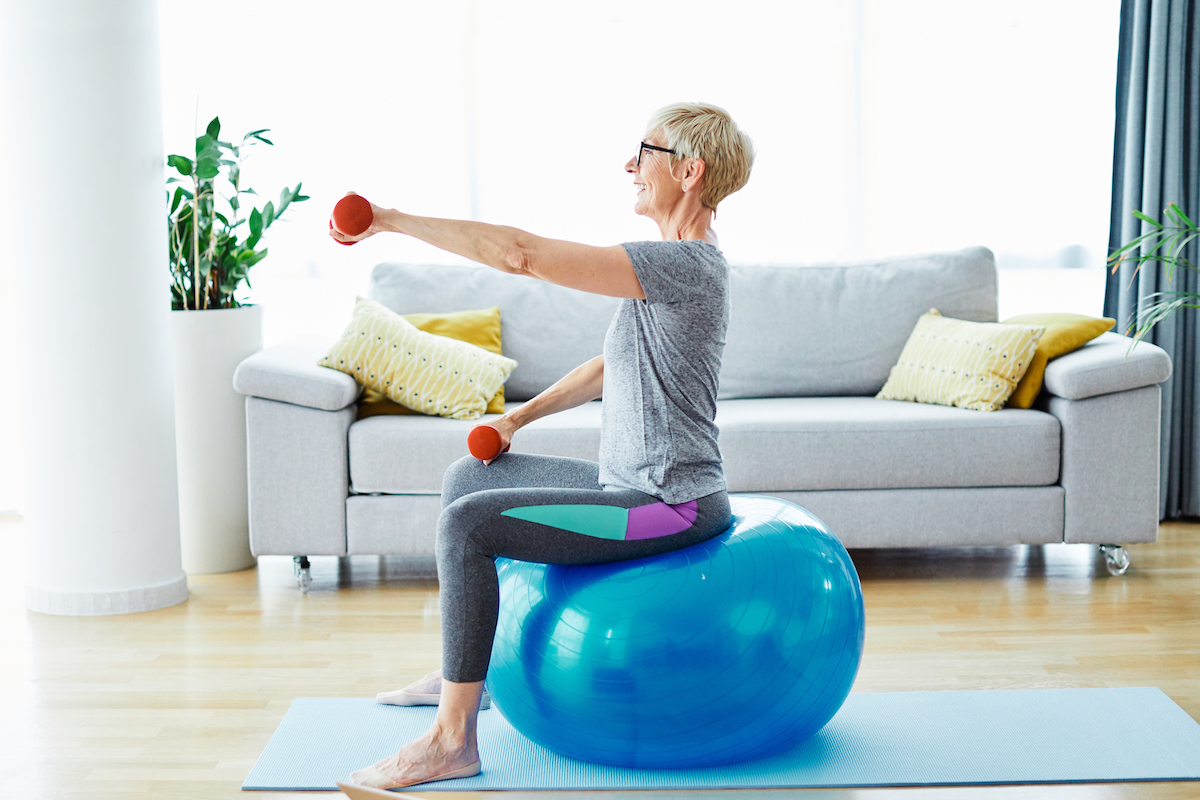November 15, 2022

Strength: “The quality or state of being strong: capacity for exertion or endurance” (Merriam-Webster); “The ability to do things that need a lot of physical or mental effort” (Cambridge Dictionary).
This word has several definitions, and we may each define it in our own way. What is “strong” to you could be someone else’s starting point. The common denominator is that maintaining your version of strength is essential to leading an active, fulfilling lifestyle.
By focusing on your strength and balance, you can maintain your independence, participate in the activities you enjoy, prevent or reduce the symptoms of chronic diseases (arthritis, osteoporosis, heart disease, etc.) and reduce your risk of falls.
Franciscan Communities provide skilled nursing care and rehabilitation services throughout Illinois, Ohio and Indiana. Our team is sharing tips for maintaining your strength and balance as well as how our rehabilitation services can help you on your health and wellness journey.
Your primary care doctor understands your medical history and any existing conditions you have. Because of this, it is important to get their advice before you make any significant changes to your daily exercise routine.
When speaking to your doctor, ask:
As we age, the cartilage that lines each of our joints becomes thinner, and less synovial fluid is produced, which may cause the joints to feel stiff or sore. This is why it is important to protect your joints, such as your knees, when you are exercising and trying to build or maintain strength.
One way to do this is by focusing on full-body movements. When exercising, choose motions that do not single out one joint at a time but instead encourage you to use your whole body. Doing so can relieve the pressure on your joints and improve your range of motion and flexibility.
Balance and flexibility are also beneficial to building and maintaining strength. When you have good balance and your muscles are flexible, you are better able to perform strength-building exercises. Additionally, working on balance and flexibility can reduce your chance of injury. Activities such as yoga and tai chi are great for improving in these areas.
While it may not seem like it, what you wear greatly impacts your risk of experiencing a fall. For instance, avoid loose-fitting clothing that can catch on furniture or door handles, as this can cause you to trip. Furthermore, wearing shoes that fit your feet properly and are nonslip can also go a long way in fall prevention.
The more clutter you have in your home, the more “stuff” you have to possibly trip over. Keep your clutter to a minimum, secure any loose flooring (rugs, loose floorboards, etc.) and keep cords tucked away.
One of the best fall prevention techniques is to light up your living space. Make sure your pathways are well-lit so you can see where you are walking. This allows you to avoid any potential hazards and prevents you from tripping unnecessarily due to a dark hallway.
Our skilled nursing care and rehabilitation communities offer a full range of rehabilitation programs that are proven effective and specialized for older adults. In addition, we work with you and your family to create the perfect plan for your goals.
Using a combination of hands-on treatment, state-of-the-art equipment and proven clinical delivery, each therapist is focused on the individual and developing custom treatment plans that care for the whole person, not just the diagnosis or condition.
Maintaining strength and balance is essential for many aspects of your health, including fall prevention. We invite you to visit our website or contact our Franciscan Ministries team to learn more about our skilled nursing care and rehabilitation services.